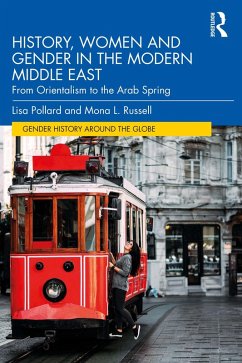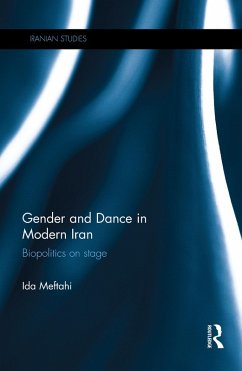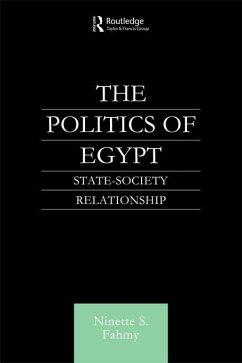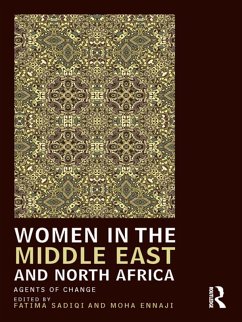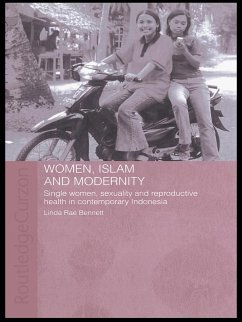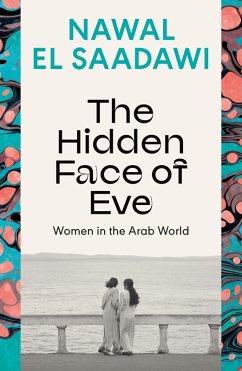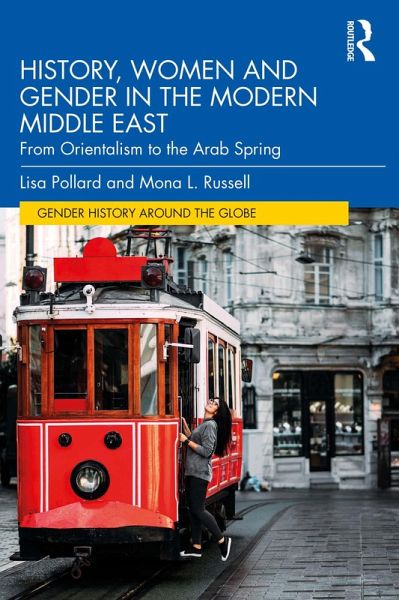
History, Women and Gender in the Modern Middle East (eBook, ePUB)
From Orientalism to the Arab Spring
Versandkostenfrei!
Sofort per Download lieferbar
38,95 €
inkl. MwSt.
Weitere Ausgaben:

PAYBACK Punkte
19 °P sammeln!
This introductory text explores the gendered history of the modern Middle East, from the eighteenth century to the present, studying the various ways in which gender has defined the region and shaped relations in the modern era.The book captures three aspects of change simultaneously: the events that mark the "modern" Middle East, women's encounters with the transition to modernity and gendered responses to modernity. It contains both new fieldwork and a synthesis of secondary scholarship that highlight the role of gender in the modernization of Egypt, Turkey, Iran, the Levant and the Persian ...
This introductory text explores the gendered history of the modern Middle East, from the eighteenth century to the present, studying the various ways in which gender has defined the region and shaped relations in the modern era.
The book captures three aspects of change simultaneously: the events that mark the "modern" Middle East, women's encounters with the transition to modernity and gendered responses to modernity. It contains both new fieldwork and a synthesis of secondary scholarship that highlight the role of gender in the modernization of Egypt, Turkey, Iran, the Levant and the Persian Gulf states. Chapters are organized chronologically to chart the rapid developments of the modern era, but each chapter also stands on its own, with coverage of masculinity and femininity, sexuality, marriage and the family, labor and women's contributions to Arab Spring uprisings. Through this comprehensive account, the book pushes back on stereotypes that the Middle East is an ahistorical region and that women have not been vital actors in the process of change.
Richly illustrated and accessible for a variety of readers, History, Women and Gender in the Modern Middle East is an ideal resource for undergraduate and postgraduate students in gender studies and Middle Eastern history.
The book captures three aspects of change simultaneously: the events that mark the "modern" Middle East, women's encounters with the transition to modernity and gendered responses to modernity. It contains both new fieldwork and a synthesis of secondary scholarship that highlight the role of gender in the modernization of Egypt, Turkey, Iran, the Levant and the Persian Gulf states. Chapters are organized chronologically to chart the rapid developments of the modern era, but each chapter also stands on its own, with coverage of masculinity and femininity, sexuality, marriage and the family, labor and women's contributions to Arab Spring uprisings. Through this comprehensive account, the book pushes back on stereotypes that the Middle East is an ahistorical region and that women have not been vital actors in the process of change.
Richly illustrated and accessible for a variety of readers, History, Women and Gender in the Modern Middle East is an ideal resource for undergraduate and postgraduate students in gender studies and Middle Eastern history.
Dieser Download kann aus rechtlichen Gründen nur mit Rechnungsadresse in A, B, BG, CY, CZ, D, DK, EW, E, FIN, F, GR, HR, H, IRL, I, LT, L, LR, M, NL, PL, P, R, S, SLO, SK ausgeliefert werden.




